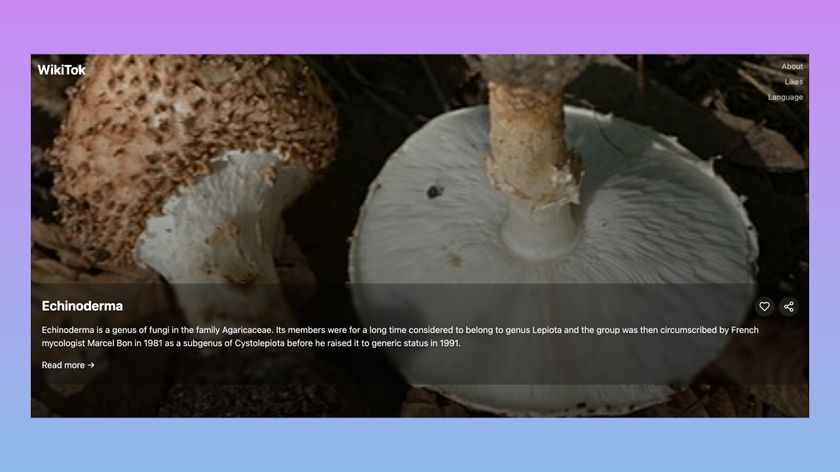Sean Murray compares No Man's Sky development to a rocketship ‘being fired into the sun’
After its first trailer was shown, working on No Man's Sky turned from a pleasant hobby into a "rollercoaster ride."
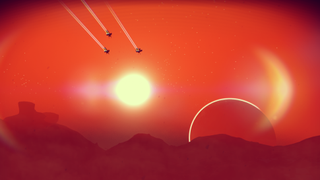
Sean Murray of Hello Games, developer and publisher of No Man's Sky, made an appearance at GDC on Thursday (after having been relatively quiet since No Man’s Sky’s contentious launch) to give a talk entitled "Building Worlds Using Math(s)." Between describing the complex procedural generation methods used to create No Man’s Sky's multitude of planets, Murray also spoke about the early days of development, when it was just him working on the engine in his spare time.
“I just wanted to sit down and write something completely different. Mainly, selfishly, because I just thought of the things I wanted to learn about, and then I started to write an engine that had those things in, I guess."
I was coming home from coding all day and I would write my little engine, and it was really fun.
Sean Murray
Murray described engine writing as a "real craft" and hoped others would continue to build their own engines it rather than adopting available ones. "I would hate to see us all use Unreal,” he said.
While working on his engine was initially a pleasant hobby for Murray, things changed drastically for Hello Games' small team when the public got their first look at No Man's Sky.
“And that was fun, that was really fun, and a really fun period in my life where every evening and weekend, I was coming home from coding all day and I would write my little engine, and it was really fun.
“Then we showed it, we showed the first trailer, and from then on it was like, it was like we were building a rocketship on the way up, like, to the sun, being fired into the sun with the skin burning from our faces, right? It was like, it was a bit of a rollercoaster ride from then on. But at the start it was genuinely just a hobby and something super enjoyable.”
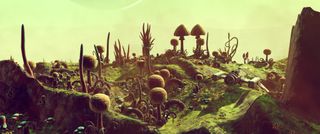
Murray also described the challenge—the impossibility, really—of testing a game that contained so many procedurally generated planets that no one, not even all its future players combined, could ever visit them all. The best Hello Games could do prior to launch was try to estimate how many players they might have at launch, and run tests based on those numbers. The team looked at two popular releases from that year: Playdead's Inside and Ubisoft's Far Cry Primal, though neither would be a good comparison for No Man's Sky, as it turned out.
The biggest gaming news, reviews and hardware deals
Keep up to date with the most important stories and the best deals, as picked by the PC Gamer team.
According to Murray, Inside's peak concurrent player count was around 3,000 players, and Primal's was 14,000. When it launched on PC, No Man's Sky had a concurrent player count of around 250,000, with another quarter million still playing on Playstation, where the game had launched a few days earlier. In other words, in terms of estimating player count, Murray's math was light years off.
Murray didn't reveal anything about upcoming Foundation features during his talk, though he did say Hello Games is still working on tweaking the procedural generation for the game's terrain. Hello Games is also launching a program called Hello Labs, which plans to fund and support the development of experimental projects that use procedural generation. According to Murray, they already have one such project under development and are currently looking for another.
I approached Murray after his talk but he politely declined my offer of an interview. I asked if he ever planned to talk to the media again, and he said "I'm sure, I'm sure, when there's something interesting to say." Even though he had just spent an hour saying interesting things, and despite my assurance that I had some interesting questions for him, he wasn't swayed.
"I think loads has been written about the game," Murray told me, "so I think in terms of us chatting, when I think there's something new to add, when the time is right, I think we'll do a bunch of press then and we'll make sure to be in touch."
In the meantime, I've sent a request to Hello about their Labs project, and will let you know when we have more information about it.

Chris started playing PC games in the 1980s, started writing about them in the early 2000s, and (finally) started getting paid to write about them in the late 2000s. Following a few years as a regular freelancer, PC Gamer hired him in 2014, probably so he'd stop emailing them asking for more work. Chris has a love-hate relationship with survival games and an unhealthy fascination with the inner lives of NPCs. He's also a fan of offbeat simulation games, mods, and ignoring storylines in RPGs so he can make up his own.
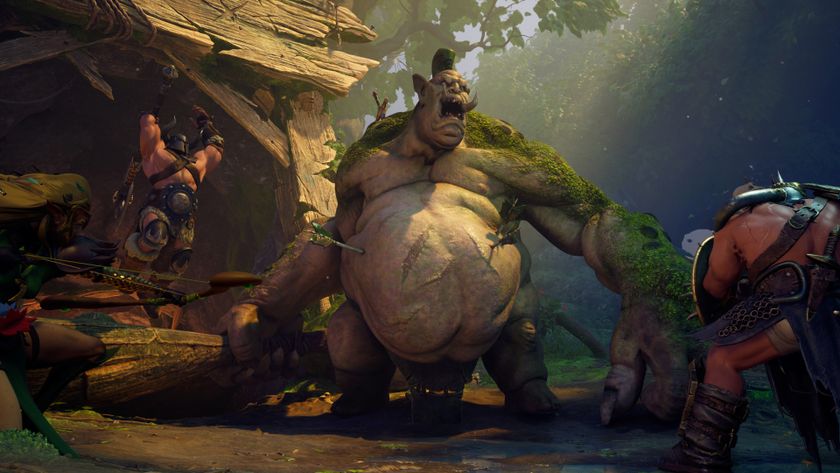
To make its fantasy extraction game, this studio of ex-Blizzard devs had to teach itself the art of third-person combat design: 'There's a science to how those are built'
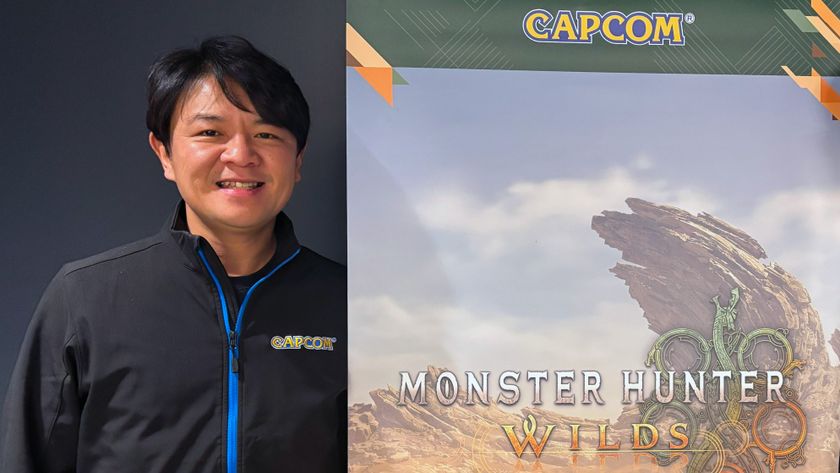
I'd be a nervous wreck, but Monster Hunter Wilds' producer is 'very confident' following up Capcom's bestselling game ever
Most Popular







